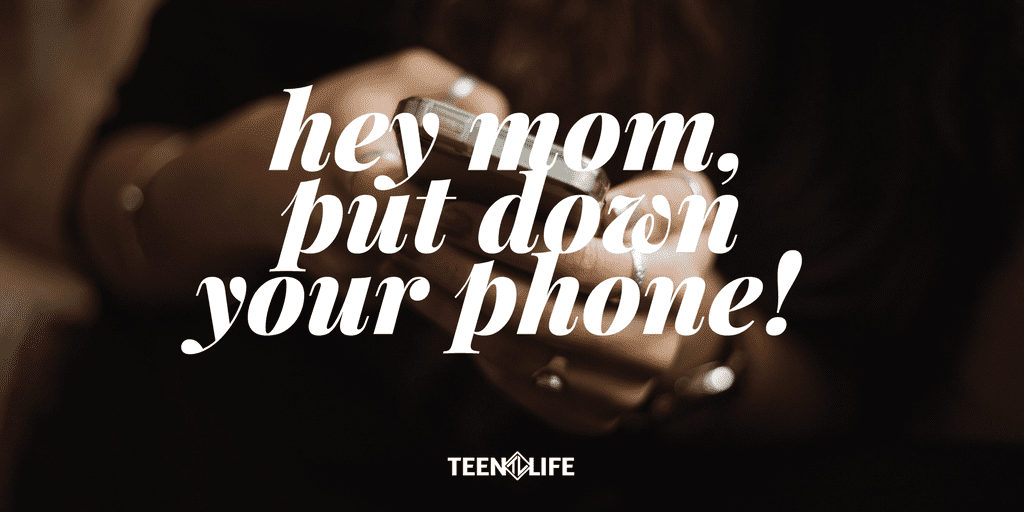
Setting Realistic Tech Boundaries for Teens | Ep. 169
Podcast: Play in new window | Download
How do we set tech boundaries that actually work?
In a world where devices are practically glued to our hands, finding a balance can feel overwhelming—but it doesn’t have to be.
We know technology can be a fantastic tool. When used with intention, it connects us, inspires creativity, and opens up learning. But when it takes over, tech can start to work against us, impacting focus, relationships, and even sleep. Teens especially need guidance on where to draw the line, and setting realistic boundaries can be a game-changer for their well-being.
So what are some practical ways to create boundaries that teens will actually stick to? These aren’t about imposing restrictions, but about helping teens build healthy habits and giving them the tools to manage their tech use.
From screen-free zones to tech-free dinners, we’re breaking down ideas that work in both classrooms and homes. Stick around for tips on everything from creating family tech agreements to setting app limits—and we’ll even share how to make it a team effort.
Key Question
What are examples of technology boundaries for adults and teens at school and home (that will actually work)?
What We Cover
00:00 Navigating Technology Boundaries for Teens
02:48 Implementing Realistic Technology Boundaries
05:58 Creating Screen-Free Zones
08:43 Designating Screen Time and Tech Breaks
11:45 Digital Detox and Screen-Free Activities
14:33 Modeling Healthy Technology Use
17:26 Encouraging Balanced Technology Use
Realistic Boundaries to Try
1. Screen-Free Zones
- No Phones in Class: Helps teens focus on learning without digital distractions.
- No Phones at the Table (Lunch/Dinner): Encourages real-life connection without screens.
- No Devices in Bed: Promotes better sleep by creating a tech-free space.
2. Mindful Tech Use
- Set “Focus” or “Do Not Disturb” Modes for Study Times: Minimizes interruptions, helping teens stay on task.
- Designated Screen Time & Limits on Time-Sucking Apps: Encourages intentional use and keeps time-wasting in check.
3. Healthy Tech Practices
- Tech Curfew: Shut down devices 1-2 hours before bed to improve sleep and recharge.
- Digital Detox Day: Unplug for a day or a few hours a week. Do something offline, like going for a walk, playing board games, or reading.
4. Privacy and Safety Rules
- Only Let Real People Follow Them on Social Media: Encourages a safer, more personal experience online.
- Have Clear Agreements if Accessing Accounts: If parents or teachers need to access accounts, setting expectations in advance can make it feel less invasive.
5. Encourage Balanced Use
- Limit Passive Use (e.g., Scrolling or Watching Videos): Promote more engaging activities like learning a new skill, working on hobbies, or socializing face-to-face when possible.
6. Create Agreements and Checkins
- Family or Classroom Technology Agreement: Develop a plan together, so everyone has a say in the rules and feels ownership.
- Regular Check-Ins: Take time to see how the boundaries are working and make adjustments as needed.
Perspective Shift
Technology doesn’t have to be the enemy; it can be a great tool when used wisely.
But it’s important that tech works for us, not the other way around.
Most teens do well with clear, achievable boundaries and expectations. By implementing and modeling tech boundaries now, we’re setting them up for lifelong success and healthier relationships with their devices.
TL Tips & Takeaways:
It starts with you.
You can’t ask teens to follow tech boundaries if you’re not willing to do it yourself.
Ask How They Feel About Tech:
Start with their perspective – listening can go a long way in building trust.
Have a question or a topic you’d love to hear about? Reach out on social media or email us at podcast@teenlife.ngo.
Read Episode Transcript
Karlie Duke (00:08)
What are examples of technology boundaries that are realistic and will actually help? That’s our question for today on the Teen Life Podcast. I’m Karlie Duke and I’m back with Caleb and Tobin. And I honestly love the second part of this question. That’s like, what will actually help? Like, cause I do feel like we’re, this is a conversation that’s happening a lot right now. I know lots of people, at least in our area, we’re reading Anxious Generation this summer and talking about what can we do to set students up for success.
But at the same time, like we need to, I want to talk about things that are doable and things that will help teens and aren’t just going to be so overwhelming that you’re like, I can’t do any of them, never mind. And just give up and let teens have free rein with their technology. So first of all, though, I do kind of want to give a perspective shift.
Which is technology doesn’t have to be bad. I think sometimes the extreme is like all technology is awful. We should all go back to the days where we only have a phone that calls people. And honestly, some days that does sound nice, but it’s not all bad, but it should work for us, not the other way around. We should not be a slave to technology, but we should use it in a way that is beneficial to us.
Also, something that I have found in my Teen Life groups over and over and over again is that most teens thrive under realistic boundaries and expectations. Like they want that. Like I’ve even had teens tell me they wish their parents cared enough to set a boundary or to give a curfew because they just know that that is helpful for them, even if then when it’s implemented they push back on it. It’s a good thing and so.
Caleb Hatchett (01:59)
Yeah.
Karlie Duke (02:02)
If we can implement those, if we can model them ourselves, I’m sure we’ll talk about that more. But if you can also do it with them, it’s going to set them up for success later when they leave for school and they’re like, Hey, this is already something that I’ve walked through. This is already something that I’ve done. And I feel like I can do this well. even when parents aren’t around or even when my high school teachers, I don’t have smaller classes anymore where my teachers know exactly what’s going on because it just is different.
and we can help them now be better later. So let’s talk about some boundary ideas, but first let me say maybe start with two or three of these. Maybe don’t try every single one of these boundaries and your teens going: what is happening right now? Like, yeah.
Caleb Hatchett (02:43)
Yeah.
At the breakfast table. All right. Here’s to new rules that we will be living by
Tobin (02:51)
Hahaha
Karlie Duke (02:55)
But I do think like, or maybe pick one this week, like, Hey, I’m going to implement this into my classroom, or I’m going to implement this personally and see how it goes. And then I’ll talk to a teen about it and we can implement it together. but start small, but we’re going to give lots of ideas. That’s what we’re here for. the first one I think is screen-free zones. And so just kind of making a, like, this is a zone that is screen-free.
classrooms are like an easy one. I know I don’t know where you’re listening from, but around us in the DFW area, there are lots of schools that are doing this already that are making special sleeves that phones go in that locks it down during the school day that like kids will get them taken up if they’re out at all in class.
the school where my husband works, they have special lockers that when they walk in the building, it’s a smaller school so they can do this, but they put their phone in a locker. It stays locked. They cannot have it until they walk off of campus at the end of the day, but they can’t have it in between classes. They can’t have it in the lunch room. But I think schools are seeing the benefit of limiting that in school, but setting that expectation. Yes, please do.
Tobin (04:17)
I can speak on that little bit because I’m in schools a lot. I will be honest and say to the listener that I am, I was very not was still, still have, I feel like that you are, you’re trying to put, you know, all the stuff back in Pandora’s box. And sometimes that doesn’t work very well. especially when you do it, like, like Karlie say, when you go from zero to a hundred in one summer, which is what a lot of districts around here did.
I’m in a couple of different districts that have done different versions of this. One of them is, is local and they have a rule now that basically anytime you’re in a classroom, the phone has to be away. So if you’re in the hallways for, passing periods or lunch or whatever it may be, that’s fair game. Send all the Instagram DMS you want, but when you’re in class, you have to have your phone away.
And the most I’ve talked to like three different high schools from this district, and every person I talked to has said that they’ve seen a decrease in fights. They’ve seen a decrease in, just kids randomly being in the hallway during class and they’re, they’re seeing an uptick in engagement in the classroom. And they said that it’s not even really like reinventing the wheel. It’s just when they’re in their heads, not buried in the phone, they’re listening better in school.
It might be causing some classroom issues, but what’s really happening is they’re not able to send messages back and forth during class. They’d like, Hey, go to the bathroom. I’m going to meet you in the bathroom in five minutes from this class. And we’re going to, we’re going to take, you know, we’re going to go vape together. We’re going to go do drugs or go fight whatever it may be. so they’re seeing a lot less struggles in that area, but also the kids are getting.
a boundary set on their social interactions. So there’s actually less drama because you’re not like you’re not getting in a fight in your, like you’re not getting into some sort of drama argument in your passing period and then taking it into the classroom and then just firing off texts back and forth, you know, at the same time. And so I think that that, that has been a positive thing. I, I am on the camp of if you’re doing what the school’s like, like your husband’s school is doing.
Caleb Hatchett (06:15)
Hmm.
Tobin (06:37)
where you are taking it fully away and, making, like doing the, the locked bags and stuff to me as a former educator, that makes me like cringe because I feel like that’s more work for the educator. and I just, I think that there is a healthy way you can let kids have devices, but also not fully take them away. But like I said, it’s, it’s working in some areas and it is probably working at your husband’s school too, in some respects too. So, but.
When you take that from the home perspective, again, just find what works for you and what’s going to be healthy for you.
Caleb Hatchett (07:13)
Yeah, I think evaluating kind of like what we said early of look at areas that technology is no longer working for you. Right.
That you are a slave to it, right? And so if you’re evaluating kind of these zones, like, okay, I, don’t need a phone in class. That’s not, that’s not beneficial. And so, you know, no phones at the table, like lunch or dinner, right? If we’re going to be having meals together, there’s no need for us to be on our phones during that devices in bed of if you notice that your teen is not getting sleep, it might be because they’re staring at the phone, have them play with their action figures or something else.
Karlie Duke (07:49)
Right.
Caleb Hatchett (07:54)
instead or, or, or read. But, what I’ve noticed is like, you know, my mind’s not active. I’m just consuming. And so I’m not getting tired. And then you throw in blue light, whatever. I don’t know. I still don’t understand that. Apparently, it’s a thing. and then yeah, using, using focus or do not disturb for study times, right? Like just kind of evaluating what are areas where technology is becoming a distraction or getting in the way of a goal that we’re trying to accomplish.
Tobin (07:56)
You
Karlie Duke (07:58)
or just sleep.
Caleb Hatchett (08:24)
and then making those zones screen-free. Another way kind of to balance it is designated screen time of kind of limiting the time limits on apps, especially ones that are like a time suck or like TikTok, where find yourself doom scrolling. If you set an hour, I promise you that hour is going to be up way faster than you think.
Karlie Duke (08:46)
Yeah, you’ll be sitting at lunch going, no, I am done for the whole day. What’s happening?
Caleb Hatchett (08:50)
Yeah, which is also another testament to like how, crazy.
the time warp technology is and yeah, allowing students to use it in the last five minutes of class. And we have to, you have to give them access to technology in order to have healthy boundaries instead of just cutting it out completely, right? If, if they’re not going to learn how to interact with it and use it responsibly if they have no access to it at all. And so it’s about kind of having the training wheels and creating safe spaces and boundaries for them to be able to use it.
Tobin (09:11)
Mm-hmm.
Caleb Hatchett (09:28)
Well, along with the devices in bed, have them turn it off a couple hours before bed even to help them get ready for bed and taking tech breaks just throughout the day to give their minds a rest in general. Cause I don’t think we realize even how active our minds are while using it, even doing thoughtless things.
Karlie Duke (09:48)
I also, someone told me about this and I need to look into it more. I’ll post a link if you’re curious. I think it’s called Brick and it is a magnet that goes on your fridge and you set when you tap your phone to it in the app, it turns off your apps and you can pick which ones you want turned off and which ones you kept on. But basically, it’s just a way of making your phone a dumb phone.
Tobin (09:55)
Mm-hmm.
Caleb Hatchett (09:56)
Mm-hmm.
Karlie Duke (10:15)
for certain periods. And so he was just saying like, do that right before bed. And so I’m not sitting there and scrolling in bed and staying up longer. Or if I’m at work, I’ll tap it. And I just know I’m like really focused on those times and then I can go turn it back on. But because you have to get up, like he was saying in bed, there’ll be times where he’s like, I wanna watch that. He’s like, but I’ve gotta get up and go to the kitchen and.
tap it, like it’s not just something you can do straight from your phone. And he was like, even that little bit makes me think like, is this worth it? Is this something that I need to be doing? and so maybe something like that, but there are lots of tools and apps. And like I said, the screen time limits that you can help set and ask teens like, Hey, what would be the most beneficial times for you to turn it off? What do you think is reasonable? What’s a reasonable amount of time for you to be on TikTok every day?
Caleb Hatchett (10:47)
Hmm.
Karlie Duke (11:07)
and let’s talk about those together without just saying like 30 minutes and you’re done. And I’m gonna set this boundary, but have conversations.
Caleb Hatchett (11:16)
There’s also ways to where you can request more time. I’ll have, parents that I work with that, that will tell stories of like, they’ll get a text at 9:30. Can I have, can I have 10 more minutes on, on YouTube or whatever? And it’s like, sure. And he could do that all from your phone, which is kind of funny, but yeah, a way of creating that conversation and that space with your team.
Karlie Duke (11:22)
Ha ha!
Ha ha
I think a lot of people also talk about digital detoxes. And this one, I’ll be honest, sounds really intimidating to me. And so it’s probably gonna sound intimidating to your student, but to completely unplug one day a week for at least a few hours, leave your phone somewhere, go on a walk, play board games, read.
Tobin (11:59)
you
Karlie Duke (12:10)
I also know people that they will do one day a week, one week a month, and like one month of year. Like so they’ll have different things but like maybe for a whole week once a month they…
use the brick where you can only get in touch with them via text or phone call, but they take everything off their phone. I also know people that on weekends they will delete email, they will delete social media, they will delete things like that from their phone so that it’s not a temptation. So there are things like that that you can do. One thing I think if you’re a teacher listening, because some of these things are just more geared towards home because that’s where they’re using their phone a lot, but if you’re an English teacher give incentives for screen-free activities like reading. Like we do that in elementary school.
Why do we not do that in high school? I would have rocked that in high school. Like if I, like you get a certain number of bonus points on this test if you log what you’re reading and give me a brief two-sentence review. Like, and I know that kids can cheat that system, but you usually will know pretty quickly if they’re doing it or not. But
Caleb Hatchett (13:03)
Yeah.
Karlie Duke (13:23)
rewarding things that are going to get them off their phone and actually benefit them long-term as well.
Tobin (13:33)
I think it’s one of those like kind of going back to the idea is not to get rid of it completely because this is stuff’s not going away. anything, it’s just expanding every day. So training them, we talked last week about social media, so it’s training them how to use it properly, in modeling. And again, as I said last week,
This is not something that we grew up with, like my generation. And so we are also learning and we need to learn with them. I like I’m, you’re sitting here saying these things and reading off these things on how to do it better. And I’m like, Ooh, like maybe I need to do this. Maybe I need to have a, you know, technology agreement with my own phone, you know, and having some no phone zones and stuff like that. And it’s just, there’s so much research that talks about
Karlie Duke (14:12)
Ha ha ha ha!
Tobin (14:20)
the addictive nature of what we’ve created. and like, I don’t want to fear monger anybody and I don’t want anybody for monger. like there, there are a lot of great things about it too. And especially as a teacher, there’s so many great things you can do. Like if it’s kid has a phone in their pocket in class. so I get it as a, as a former teacher, like use the technology, but we all see to figure out a way to do it respectfully and responsibly. just a couple of things to like some takeaways, like it’s like I just said,
It starts with you. Like one of the things in my house with my oldest son was he would sit down to eat his dinner and immediately have his hand out while he’s eating, scrolling things on his phone. And I, that really frustrated me. And then I realized like, dummy, it’s because you do that too. Like whenever it’s just you eating or whatever. And so I had to like, we don’t necessarily have a no phone zone, like, I made a rule. Like when we’re sitting at a table,
And I say, I made a rule. I made a rule because my wife was making that face at me that I need to make a rule. and it’s just, when we were sitting down eating, like that’s a, that’s a non-negotiable, like there’s not, there’s like maybe one person in this world that needs to text you right now that you could eat, that you didn’t even need to talk to you and the rest of them are at this table. And so put your phone away. but that, again, that started with me of like,
Karlie Duke (15:22)
you
Tobin (15:42)
recognizing when I’m sitting down by myself to eat because, or like if I’m sitting down and other things are going on and I would get my phone out and start scrolling Twitter, watching the game or something like that. I have to show the student what I need to be doing, what I need to be doing. I will tell you as a, as a teacher, it’s, it’s, it’s really hard. Like, cause I, when I, if I was a student right now and a teacher was telling me you can’t have your phone in class. And then all of sudden I’m texting my wife from my desk.
Like that would really frustrate me as a student. So as a teacher, just kind of be mindful of that, of if you have a policy at your school, or if you’re trying to have a no screen classroom, you obviously emergencies are emergencies and you might need your phone for other things, but keep that in mind. If you’re having them do some independent work and then you’re scrolling Instagram on your phone, like that’s not great. Like model it like, and again, I’m, I’m not, I’m preaching to myself too. Like I’m guilty of that as well of.
Caleb Hatchett (16:16)
Yeah.
Tobin (16:41)
makes you making sure that you model what you want the students to be doing. I think one thing that my generation and above, one thing that we got away with too long was, well, I’m an adult, so the rules don’t apply to me. And it’s like, well, okay, but, but what your modeling is, is that you need to like, you don’t care what they’re doing because you want them to, know, so like the rules, they’re not rules. It’s just, this is what we should be doing.
Karlie Duke (16:59)
Right.
Well, I’ve had to, I’m sorry, Caleb. I’ve had to before in a teen life group, if…
Caleb Hatchett (17:05)
And I think we… You go Karlie.
Karlie Duke (17:13)
One time, one of my kids was sick and my husband was having to take him to the doctor, but I was in a group and I didn’t want to be on my phone, but I had to let them know like, Hey, I’m just letting y’all know I’m keeping my phone here just today because I’m waiting for a text from my husband to make sure that my kid is okay. And you don’t always have to go into details, but like you’re saying Tobin, if there’s an emergency that you’re like, I have to be looking at my phone a couple of times today, just say that.
Just say like, I can’t go into details, but there is a reason and I’m sorry ahead of time that that is the case. I don’t like to make that a habit, in like making sure that you’re talking through like, hey, here’s my thought process and I’m acknowledging it so that you’re modeling for them also what is healthy and what’s not.
Caleb Hatchett (17:54)
Yeah, I think we focused a lot too on cell phones, especially. I mean, if we’re talking to technology as a whole, right, of computers, I know even for me, lot of students like video games, everything like that. so just a general rule, just encourage the balanced use of, of limit your time. And then again, encouraging
them and students and even yourself to use technology for a purpose, to develop skills like video editing, art, all of these things. Like technology is useful. And it’s again, like Tobin said, it’s not going away. And so even teaching them how to use it for themselves and use it for things that they enjoy. But even with that, encouraging boundaries with it and using it balanced and making sure that they’re not ignoring
other areas of their life in order to spend time on it.
There’s a few others that we won’t be able to go into super depth, but you know, even creating an agreement and check-in with your family, with your students of making sure that, Hey, we’re all playing on the same rules and let’s check in and see how things are going. And again, it goes back to making sure that, that you are modeling it yourself and being real with your team. can create cool conversations and a cool relationship with that. This is brutal. I’m having a hard time with it as well. And then encouraging active socializing, face
to face is better than through a screen. A lot of teens, myself included, I use technology video games to keep up with friends. And yes, it’s a cool tool if we’re not in the same city, things like that, but encourage getting to know face to face. And then again, as always, model it yourself.
Karlie Duke (19:39)
I watched and we might have talked about this on the podcast and then I’ll try to find it and post it. But there’s, I can’t remember if it’s a Ted talk or something like that. That talks about, when it comes to modeling, like put your phone down when you’re having a conversation and don’t just like look up from your phone, but there’s this talk. Like I said, I can’t remember exactly all the details, so I’ll post it. But he says that there’s science behind.
Caleb Hatchett (19:55)
Mm.
Karlie Duke (20:08)
If you’re looking at a phone and you look up and make eye contact with someone versus you putting it in your back pocket or putting it away where you can’t even see it. And what that tells the person you’re talking to is I care about you more than the screen. I care about you more than someone who’s texting me. And even if you think, I’m looking at them or I’m listening to them, if the phone is still out and visible, that is still just a marker of, yeah, but this is important enough that I can’t let go of it.
Tobin (20:35)
Mm-hmm.
Karlie Duke (20:38)
And so I think that’s so important to put it away. Don’t try to multitask. If you’re watching something with your kid, but you’re also on your phone the whole time, that’s telling them it’s not as important. if like Tobin saying, if you’re a teacher and you’re trying to do something at school, but you’re also on your computer and they’re talking to you and asking questions and you’re not looking up like.
Those are things that we can do to tell teens you’re important and I care about you and also model like, you should also put your phone up. Hey, we’re both gonna do this. When I’m talking to you, will you put your phone up so that we can have a better conversation?
Caleb Hatchett (21:15)
And it’s so, so, so, so important to model these things now.
And get them to know now, cause it’s, promise you, it’s only going to get worse. If we look at, whatever the Apple AI thing is, like the Apple lens where you can still talk and see face to face, but it’s through something of it’s, it’s only going to get worse and technology is only going to get more and more implemented into our day and day lives. And so if you can model the fact of, Hey, know, putting these things up and, and, and prioritizing real relationships and not
Karlie Duke (21:35)
Right.
Caleb Hatchett (21:50)
being a slave to technology, the better off your student, the better off you are gonna be in years to come.
Karlie Duke (21:59)
Right. So hopefully you heard a couple of things that you feel like are practical and you feel like you could actually do and implement. And so we just challenge you to take one or two of those things this week and try it and then check in with that team and say, Hey, how did it go? Here’s how it went for me. And let’s do this together and do it as a class or as a youth group or as a family.
and we just hope that that is something that’s helpful for you this week and allows you to connect with your teen better. once again just subscribe on YouTube or wherever you listen to podcasts. This is a wrap on this season of the Teen Life podcast but we will be back with a special Christmas episode so make sure you subscribe so you don’t miss that and then we will also be back with more questions in the spring so submit those to podcast @teenlife.ngo and we’ll see you later.
Links & Resources:
- Get a Brick Shop
- The Anxious Generation by Jonathan Haidt
- Teen Life Podcast: Cell Phone Boundaries | First Cell Phone Advice
- TikTok: Simon Sinek on cell phone distraction

Karlie Duke
Communications Director

Tobin Hodges
Program Director

Caleb Hatchett
Podcast Host
Karlie Duke | Director of Communications
Karlie has always had a heart for teenagers. Through her role at Teen Life, she loves to showcase the amazing stories coming out of Support Groups, but she is especially passionate about helping adults and teenagers find connection. Karlie has a BS in Communications with a minor in Family Studies from Abilene Christian University.
Caleb Hatchett | Podcast Co-Host
Caleb loves helping teenagers take ownership of their faith and relationships. He graduated from Abilene Christian University with a degree in Youth and Family Ministry and is currently Student Ministry Director at Jenks Church in Oklahoma.
Tobin Hodges | Program Director
Tobin’s entire career has been centered around students and teens from all walks of life. He has a passion for helping teens be their best selves. As Program Director, he loves working directly with school staff and students through Teen Life Support Groups. Tobin has a Bachelor’s Degree in Music from Texas Tech University.




